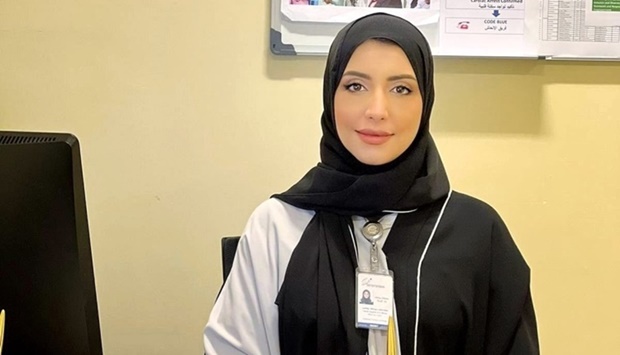The Primary Health Care Corporation (PHCC) has encouraged parents to develop their skills and knowledge in managing their children’s and adolescents’ challenging behaviors within a natural environment.
Scientific researcher and principal investigator Dr Sarah Musa, community medicine specialist and wellness in-charge in Rawdat Al Khail Health Centre, recently published a study in the ‘Psychology Research and Behavior Management’ journal in this field.
She urged parents to understand their children’s needs, conduct a comprehensive analysis to recognise reasons behind challenging behaviours, aiming for early intervention and obtaining support to prevent advancement of chronic mental illnesses and risky acts.
She was the lead investigator of the study.
Dr Musa explains that challenging behaviours are the ones that exhibit a recurrent pattern or interferes with or is at risk of interfering with optimal learning or engagement in prosocial interactions with peers and adults. It can be either internalising such as difficulty concentrating, being anxious, persistent avoidance of activities, social withdrawal, crying or hiding, or externalising, which is expressed towards the outer environment through hitting, spitting, property destruction, fleeing and yelling.
Owing to the Covid-19 measures, there has been a noticeable increase in challenging behaviours, depression, anxiety, change in sleeping or eating patterns, leaving parents overwhelmed. Due to the fact that aggressive and antisocial behaviours may exist beyond the age of three in up to 15% of preschool-age children, early interventions are recommended.
The study sheds light on the importance of understanding the interrelated factors that may influence children’s behaviours, including developmental, environmental and socio-cultural elements. Understanding those determinants as well as the normal developmental milestones that children go through during their life stages will guide parents in controlling such behaviours.
For instance, some behaviours are expected from and typical of a certain age. Physical aggression is commonly seen between the ages of 17 and 42 months. However, parents should understand that every behaviour serves a function or purpose; for example, communication difficulties such as delayed language or speech or poor social competence may trigger challenging behaviour as a way of communicating with their environment, especially during an anxious or a stressful situation.
The research highlights two effective tools for managing such challenging behaviours, namely functional behavioural assessment and positive behavioural support. The principle behind these tools is to conduct a formal analysis of the behaviour to understand the root causes and purposes, such as social attention, escape, tangible (the desire for certain things) or sensory, which assist in coping with negative emotions such as boredom or anxiety.
A thorough investigation will identify each behaviour frequency, duration, topography and the environment in which the behaviour occurs. Following that, behavioural intervention plan is developed that shows a clear relationship between cause and effect, behavioral goals, a plan for a new behaviour and monitoring indicators to evaluate improvement.
Dr Musa says there are multiple interventions and strategies aiming to modify such behaviours, including changing the antecedents or consequences related to a behaviour, replacement skills or positive behavioural support. For example, when a child avoids brushing the teeth, the antecedent strategies could be to use visual timer or auditory cues (for example, preferred song signals to show how long the activity will take), or use a favourite flavoured toothpaste.
Replacement skills could be to teach how to request a break from the current activity by saying stop, holding up his/her hand while the consequences strategy may include providing frequent verbal praise for appropriate behaviour.
The study supports that enhancing parental capacity through training, coaching and empowering them to identify their own strengths will help construct positive parent-child interactions.
Additional attention should be given to those more susceptible to mental health challenges.
The study offers a strategic template that facilitates and supports a comprehensive approach, including developmental screening, promotion, prevention and intensive intervention through an individualised plan tailored to each child and family needs. It also calls practitioners, schools and parents to improve their skills and knowledge to conduct behavioural assessments and implement interventions within a natural environment.
PHCC encourages parents to develop skills in managing children’s challenging behaviours

















Leave a Reply